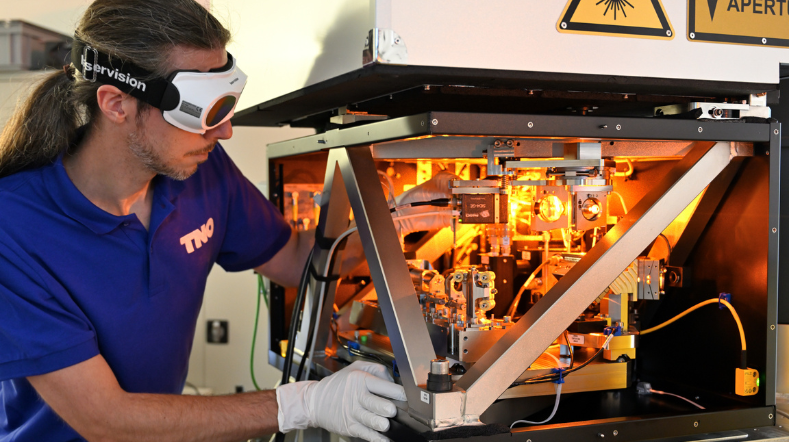
TNO intensifies cooperation with South Korea and Japan: Smart Cities, Smart & Sustainable Mobility and Semiconductors
TNO's recent trip to South Korea and Japan highlights the mutual societal challenges and technological opportunities for the Netherlands and both allies in areas such as Smart Cities, Smart & Sustainable Mobility, and chip technology. We reflect with TNO's CEO Tjark Tjin-A-Tsoi, who also sees a clear assignment for the new cabinet.
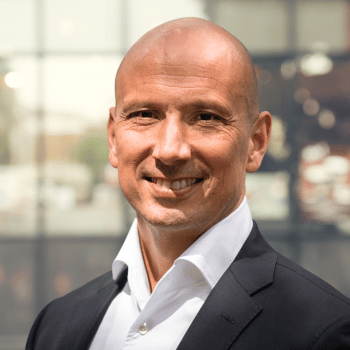
‘At TNO, too, we will increasingly think in terms of the entire innovation chain, up to and including successful implementation and making impact in society.’
For a week, a TNO delegation travelled through South Korea and Japan to showcase R&D knowledge, strengthen ties with (potential) partners, and sign MoUs for new partnerships.
The reason for the trip was the three-day Korea Land & Transport Technology Fair in Seoul, where Tjark Tjin-A-Tsoi delivered the keynote. Tjin-A-Tsoi: ‘This shows that the Netherlands, and TNO in particular, are held in high regard in this region. They see us as excellent partners because of our knowledge and infrastructure, but also due to our long-standing relationship.'
'For the Netherlands, that's an asset that we really need to exploit. Moreover, the increasing geopolitical tensions in the world make it obvious that we should further strengthen ties with our allies. The Netherlands has therefore identified South Korea and Japan as priority countries for cooperation.’
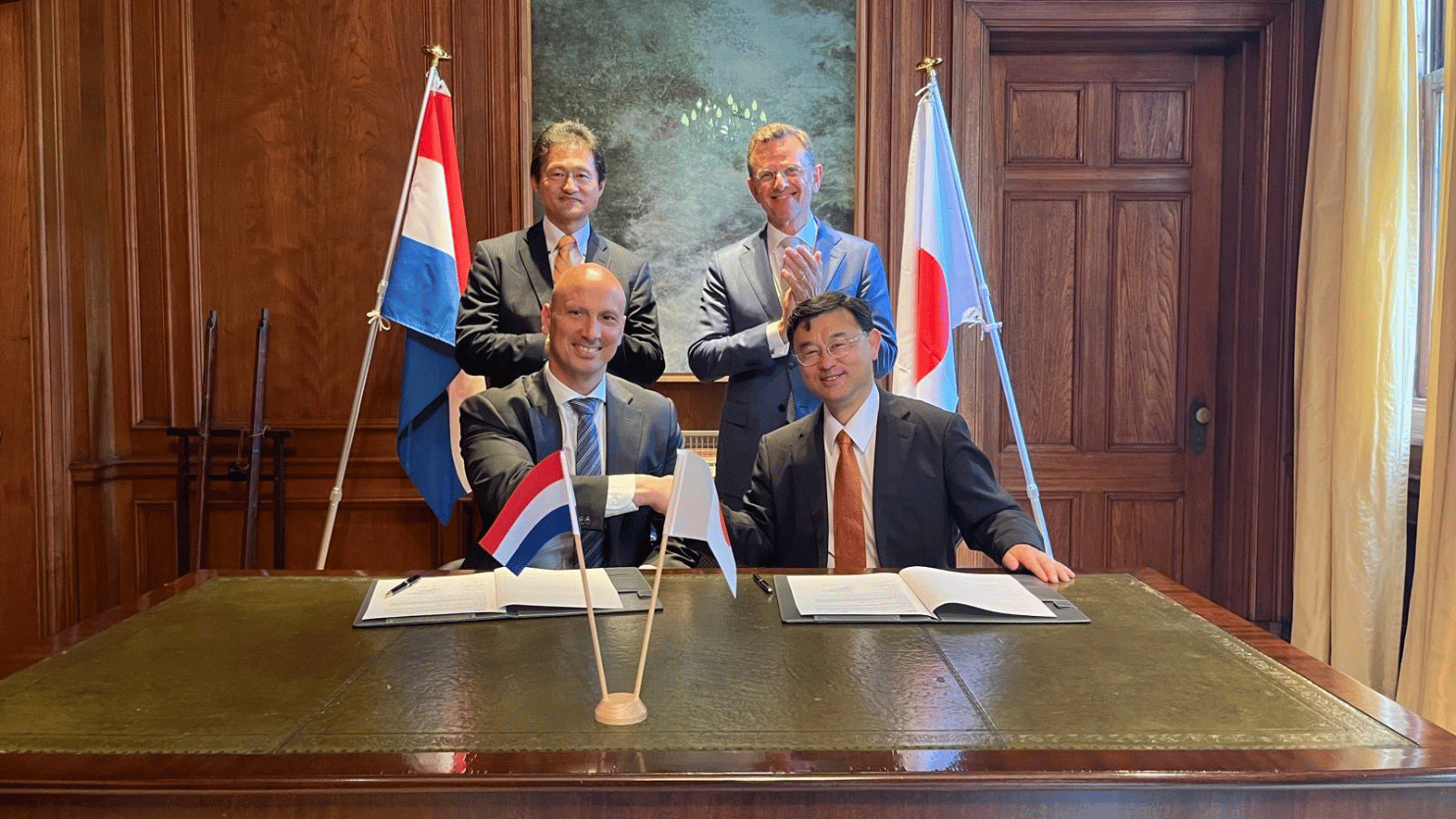
South Korea dares to choose
In recent years, TNO has expanded its activities in the Asia-Pacific region, partly due to the high investments there in technological developments.
‘Japan and South Korea are innovation powerhouses, investing about 4.5% of their GDP in R&D annually. To stay connected to major tech developments, the Netherlands must be active in this region. TNO has had successful collaborations in Japan for a long time, but there are also great opportunities in South Korea. It's impressive to see a country making clear technology choices and fully committing to them.’
The Korean government and industry are jointly investing $450 billion in semiconductor technology over the next 20 years. The automotive industry is focusing on electrification, autonomous driving, and hydrogen, with Hyundai alone investing $1 billion in self-driving vehicles. ‘These are all areas where TNO can add significant value. For example, with StreetWise, we have a unique methodology to validate the safety of autonomous vehicles.’
Focusing on sustainable wellbeing
During the tour, there was again a lot of interest in both countries in Urban Strategy, TNO’s predictive twin technology for urban planning. TNO, together with the director of the Smart City Institute Japan, Professor Takehiko Nagumo, signed an MoU for cooperation in ‘Sustainable Wellbeing’. The institute developed indicators, including social cohesion, to make sustainable and broad wellbeing measurable.
Tjin-A-Tsoi: ‘For TNO, it is very interesting to link this set of indicators to our Urban Strategy models. This allows us to make predictions about the impact of measures in urban areas on broad wellbeing, such as planning a new residential area, a shopping center, or green spaces.’ The Smart City Institute aims to leverage Urban Strategy for managing the complexities inherent in urban planning. Several Japanese cities have expressed interest in working with these predictive digital twins.
The threat of an ageing population
A major challenge in this region is the increasing aging population. ‘The reproductive rate in Japan is about 0.9 and in South Korea it is 0.8, where it should be at least 2.1,’ Tjin-A-Tsoi clarifies. ‘Again, this is a shared concern. Due to migration, the problem is less noticeable in the Netherlands, but it is still an issue, and the population is ageing here as well. In Japan, the population shrinkage is already approaching a million residents a year. Despite the enormous economic impact it will have, this theme is less often openly discussed, even within Europe.’
Increasing urbanisation contributes to this low reproduction number and ageing population. ‘The increasing price pressure in cities makes it more difficult for large families to live there. In addition, there is a need for childcare in neighbourhoods and for safety. These types of variables influence family planning. Part of the solution is making cities more family-friendly. Predictive twins can also be used to achieve this.’
Unfriendly business climate in the Netherlands
For Tjin-A-Tsoi, the trip also highlights the differences with the Netherlands in terms of innovation policy. 'In countries such as South Korea and Japan, the government has an industrial policy that makes it very interesting for industry to invest in innovation. In the Netherlands, we now have a situation where industrial parties are considering leaving the country or have already left.'
'This is due to many factors, such as energy prices, wage costs, available personnel and regulatory pressure. But it is also due to an unfriendly, sometimes even toxic, business climate. In the long run, this will ensure that companies and even Dutch pension funds will no longer invest in the Netherlands. We do not yet know exactly how the new government will view this. The new cabinet has promised to pay a lot of attention to the business climate. It remains to be seen what exactly this will mean in practice.'
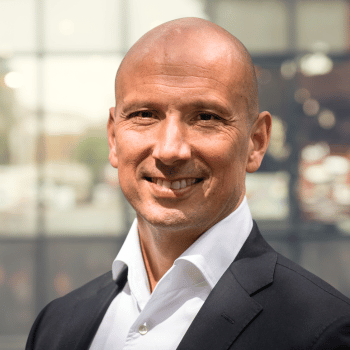
‘Do we want to participate fully in the development of semiconductors, quantum, integrated photonics, AI and biotechnology? Do we? Then let us invest in a very focused and substantial way.’
Boom & bust scenario
At the same time, the new government is likely to stop the Growth Funds. Tjin-A-Tsoi calls this a moment of reflection. 'Not everything can come from the government. Even with the Growth Funds, we were still only at 2.3% of GDP, and we needed €6.7 billion of private investment per year to reach 3%. Meanwhile, we are seeing a process of de-industrialisation in Europe: in the first quarter of this year, CBS recorded a 5.5% drop in industrial turnover in the Netherlands. While industry invests the most in R&D.'
To reverse this trend, Tjin-A-Tsoi believes that Dutch innovation policy needs to be overhauled. 'In Japan and South Korea, industry drives innovation, with the government facilitating targeted collaboration with industry to create the right infrastructure and conditions. This is something the Netherlands can learn from. We should not equate innovation policy with subsidies. The problem with subsidies is that you can become addicted to them. If you see them as a form of permanent funding, you make yourself dependent.'
'You are creating a potential boom and bust scenario, where you boom when the government is funding abundantly, and risk losing everything when they quit due to policy changes. Instead, we should use subsidies for their intended purpose: to stimulate market developments that wouldn't otherwise happen, and to develop infrastructure and ecosystems that can then succeed in the marketplace on their own.'
Innovating with a long-term vision
In addition to cooperation between government and industry, we in the Netherlands, including TNO, need to work with a long-term vision. Less scattershot approaches and more focused investments in areas where we are demonstrably strong compared to others.
Tjin-A-Tsoi: 'This means making sharp choices and convincing commitments. Do we want to participate fully in the development of semiconductors, quantum, integrated photonics, AI and biotechnology? Do we? Then let us invest in a very focused and substantial way. Not one year, not two years, but ten, twenty years. In infrastructure, in training people, in projects, in financing start-ups and scale-ups. We can do much more in the Netherlands to make the innovation chain really successful.'
'Subsidies can play a role in this, especially to stimulate and accelerate, but we must not become fixated on them. At TNO, too, we will increasingly think in terms of the entire innovation chain, up to and including successful implementation and making impact in society. By focusing on the market, on our customers and on innovations that create both economic and societal value.'
Get inspired
Pioneering with a purpose: The Netherlands at the forefront of quantum innovation


Pioneering on the edge of physics: quantum chips tested faster and faster


How TNO’s Ines Corveira Rodrigues shapes tomorrow's quantum world
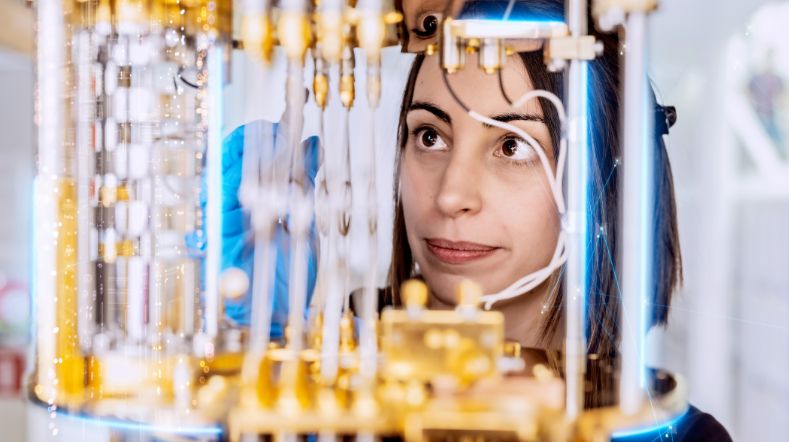

TNO launches Motion Comfort Institute for automated vehicle era
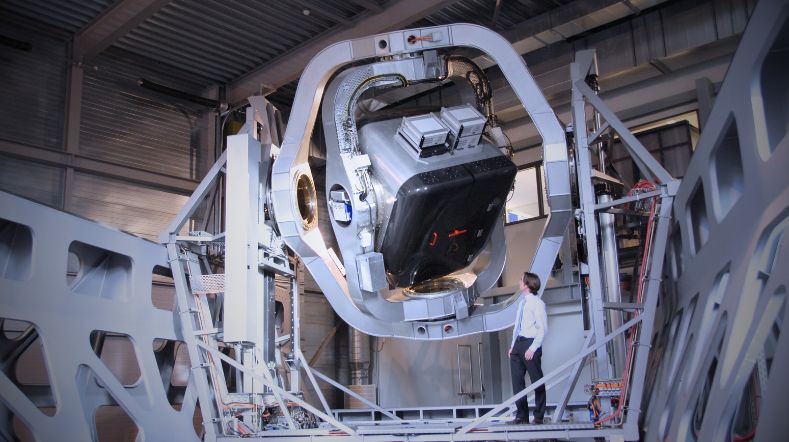

Optics
